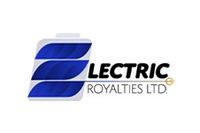Amnesty International Cobalt Report Highlights Supply Chain Issues
A report released this week by Amnesty International reveals that not all is well in the cobalt space.
Cobalt has received a lot of positive attention lately, largely because many in the industry are calling for market tightness this year. However, a report released this week by Amnesty International reveals that not all is well in the cobalt space.
The report, titled “This is What We Die For: Human Rights Abuses in the Democratic Republic of the Congo Power the Global Trade in Cobalt,” examines the cobalt supply chain, concluding that major tech companies — including Apple (NASDAQ:AAPL), Samsung (KRX:005930) and Sony (TSE:6758) — are not ensuring that their products do not use cobalt mined by child laborers.
To prove that point, the report explains how traders buy cobalt from places in the Democratic Republic of the Congo (DRC), where child labor is common, then sell it to Congo Dongfang Mining (CDM), a wholly owned subsidiary of China’s Zhejiang Huayou Cobalt. According to the report, Huayou Cobalt and CDM then process the cobalt and sell it to Chinese and South Korean manufacturers of battery components. From there, the battery components are bought by battery makers that “claim to supply technology and car companies.”
Amnesty International’s report has understandably led to outrage against Apple and the other companies accused of using this cobalt, with a number of them stepping forward to address the report. Reuters states that Apple has responded by saying that it has “a zero tolerance policy towards child labour” and is looking at “ways to improve its identification of labour and environmental risks.”
Meanwhile, Samsung has said it has “conducted written evaluations and on-site inspections of all suppliers to certify compliance with human rights, labour, ethics, environment and health standards.” CBC News has aggregated similar responses from other companies named in Amnesty International’s report.
It might seem strange that these large companies aren’t able to give more definitive statements about whether Amnesty International’s accusations are true. However, the supply chain dynamics of such companies can be notoriously difficult to follow, despite efforts from various nations to govern so-called conflict minerals — minerals that come from mining operations that support conflict in the DRC.
For example, the US has spent years working to increase supply chain transparency via the Dodd-Frank Act. That act has done a little to spur more openness from companies — for instance, Intel (NASDAQ:INTC) will begin featuring a “conflict free” label on its products in Q2 2016. However, the company had to work for a long period of time — nearly five years — to ensure that none of the coltan, tantalum, tin, gold and tungsten in its products are from suspect operations in the DRC.
What’s more, as CBC News points out, cobalt is not considered a conflict mineral, and as such is not addressed by Dodd-Frank, nor by other nations looking to stop the use of conflict minerals. There’s thus some concern about whether the cobalt supply chain issues identified by Amnesty International will be addressed.
Benchmark Mineral Intelligence brings that issue up in a Wednesday blog post, commenting that if major battery manufacturers like Panasonic (TSE:6752) and LG Chem (KRX:051910) “are going to meet the demand for batteries in our smartphones and electric vehicles over the coming years, greater supply chain visibility will be required — to protect not only the future of the industry, but the fate of the miners bringing these materials to market.”
One company that’s so far managed to circumnavigate such supply chain issues is Tesla Motors (NASDAQ:TSLA), which is currently building a lithium-ion battery gigafactory in Nevada. The Elon Musk-led company plans to source the lithium, graphite and cobalt that it will require only from North America, eliminating conflict minerals from the equation.
As yet, the company has only signed two supply deals, both with lithium companies, though hopes are high that 2016 may bring deals in the graphite and cobalt spaces. However, it’s important to note that simply sourcing cobalt from North America isn’t an option most companies will be able to choose — while Canada was the third-largest cobalt producer in 2014, it still put out only 7,000 MT of the metal, far behind the DRC’s 56,000 MT. The US produced no cobalt that year.
And while there are companies hoping to add to North America’s cobalt output in the coming years — Global Cobalt (TSXV:GCO), Formation Metals (TSX:FCO) and Fortune Minerals (TSX:FT) are a few — higher output outside the DRC won’t eliminate the need to address cobalt supply chain issues there.
All in all, it’s clear that the cobalt supply chain situation is a complicated one, and of course cobalt-focused investors may be wondering what they should do with all the information that’s come to light this week. For now, the best bet may be to look at cobalt opportunities outside the DRC, and to watch to see whether Apple and the other companies mentioned by Amnesty International make changes to how they operate.
Securities Disclosure: I, Charlotte McLeod, hold no direct investment interest in any company mentioned in this article.
Editorial Disclosure: Global Cobalt and Formation Metals are clients of the Investing News Network. This article is not paid-for content.

